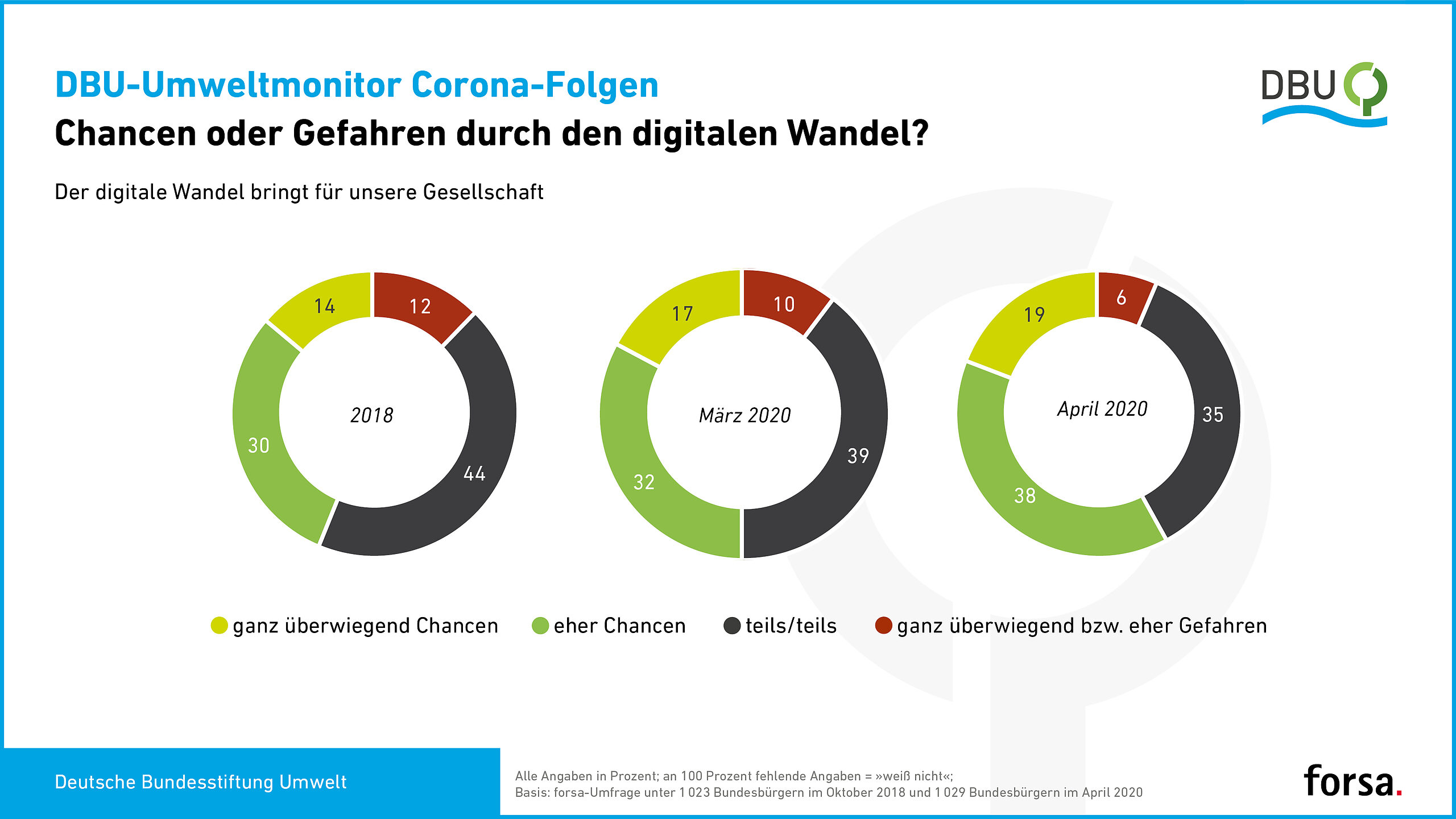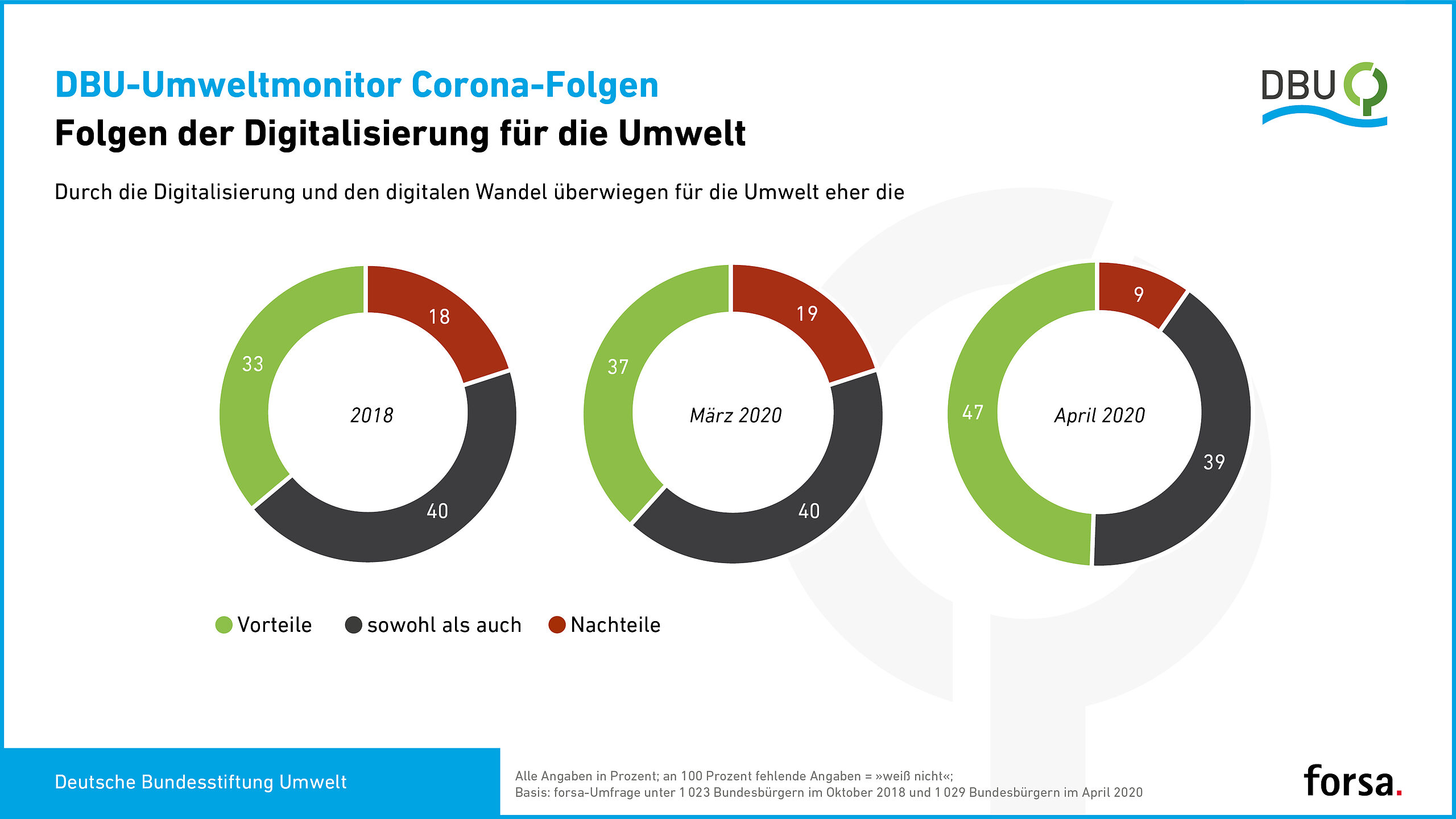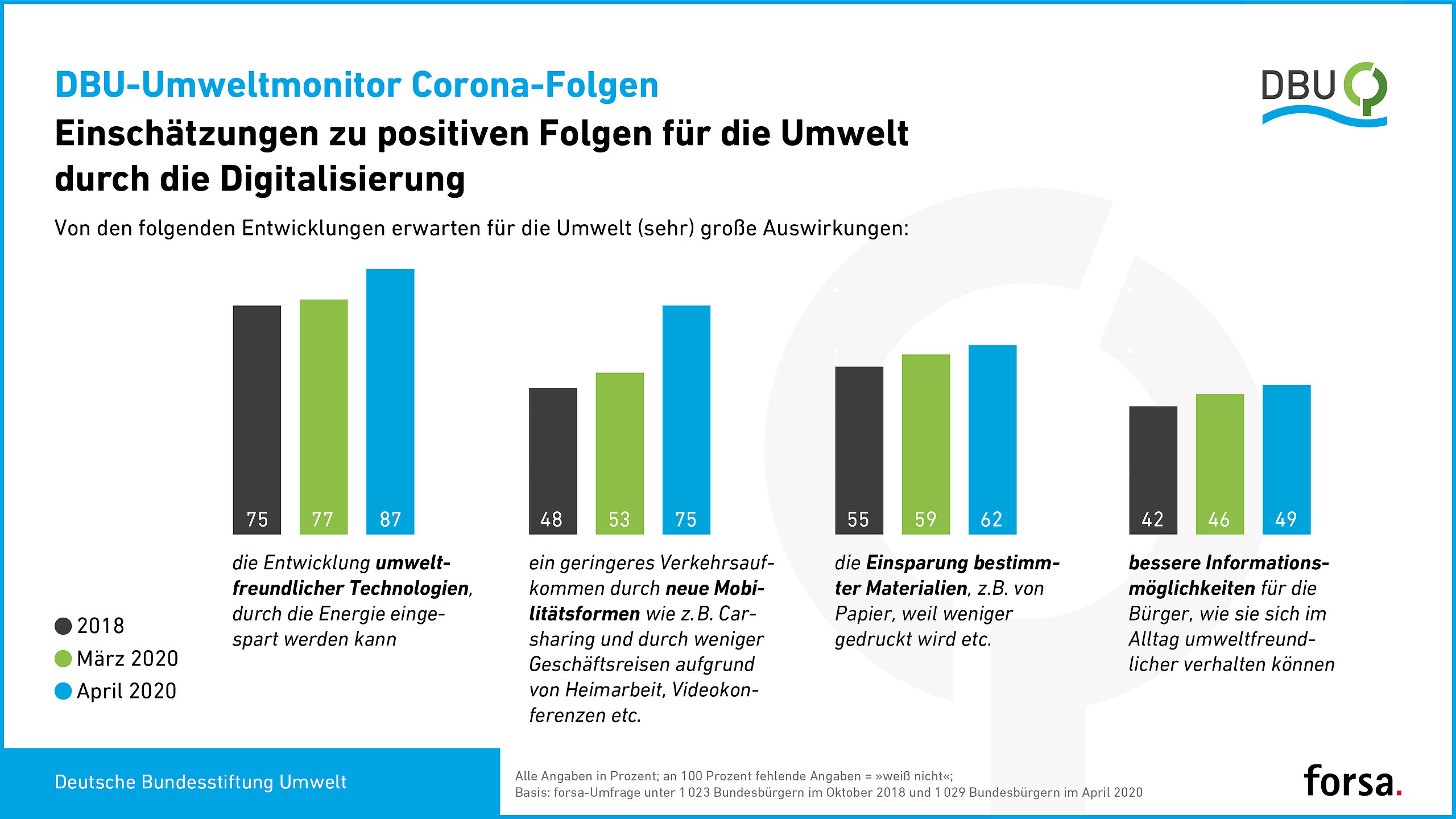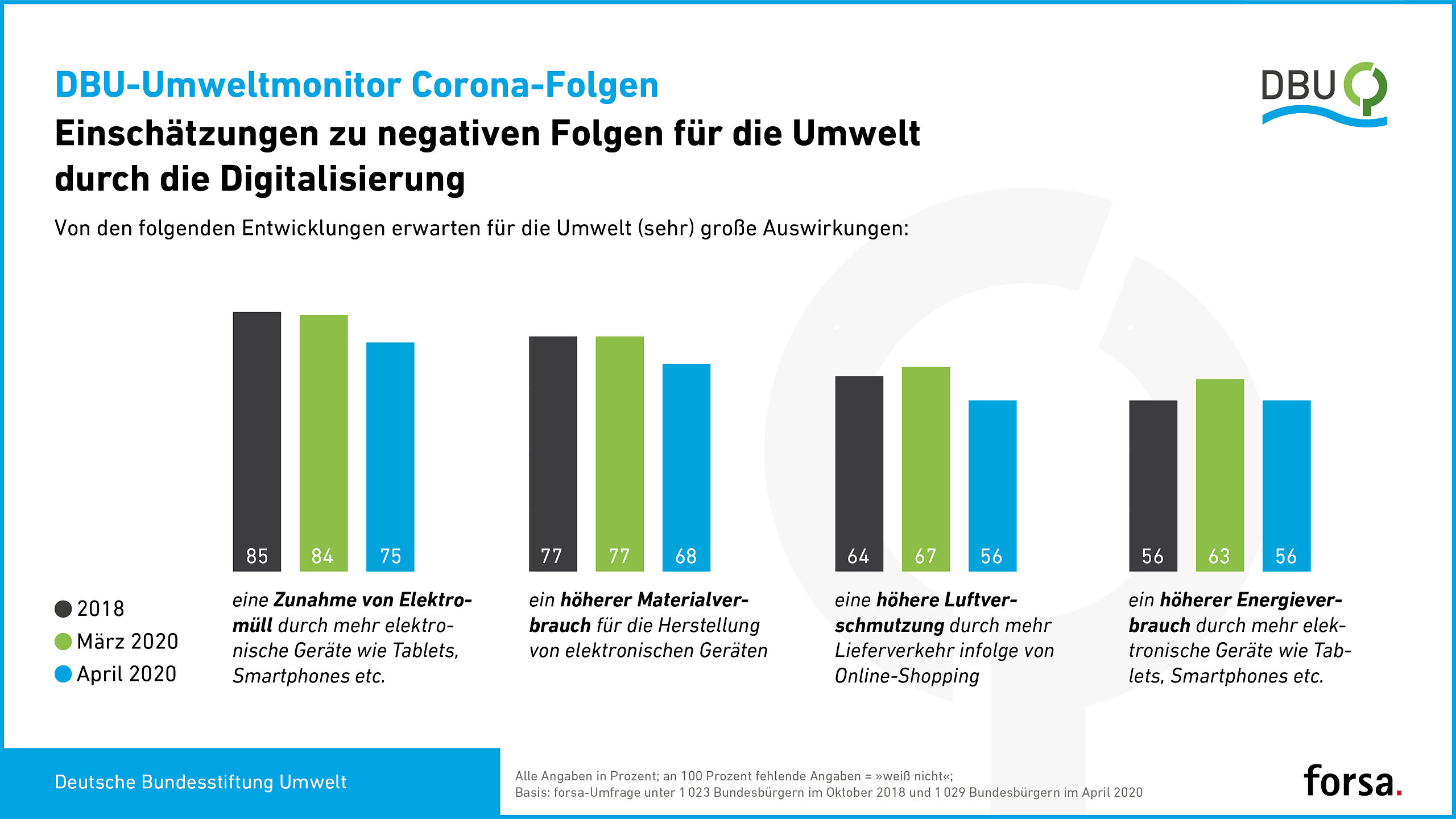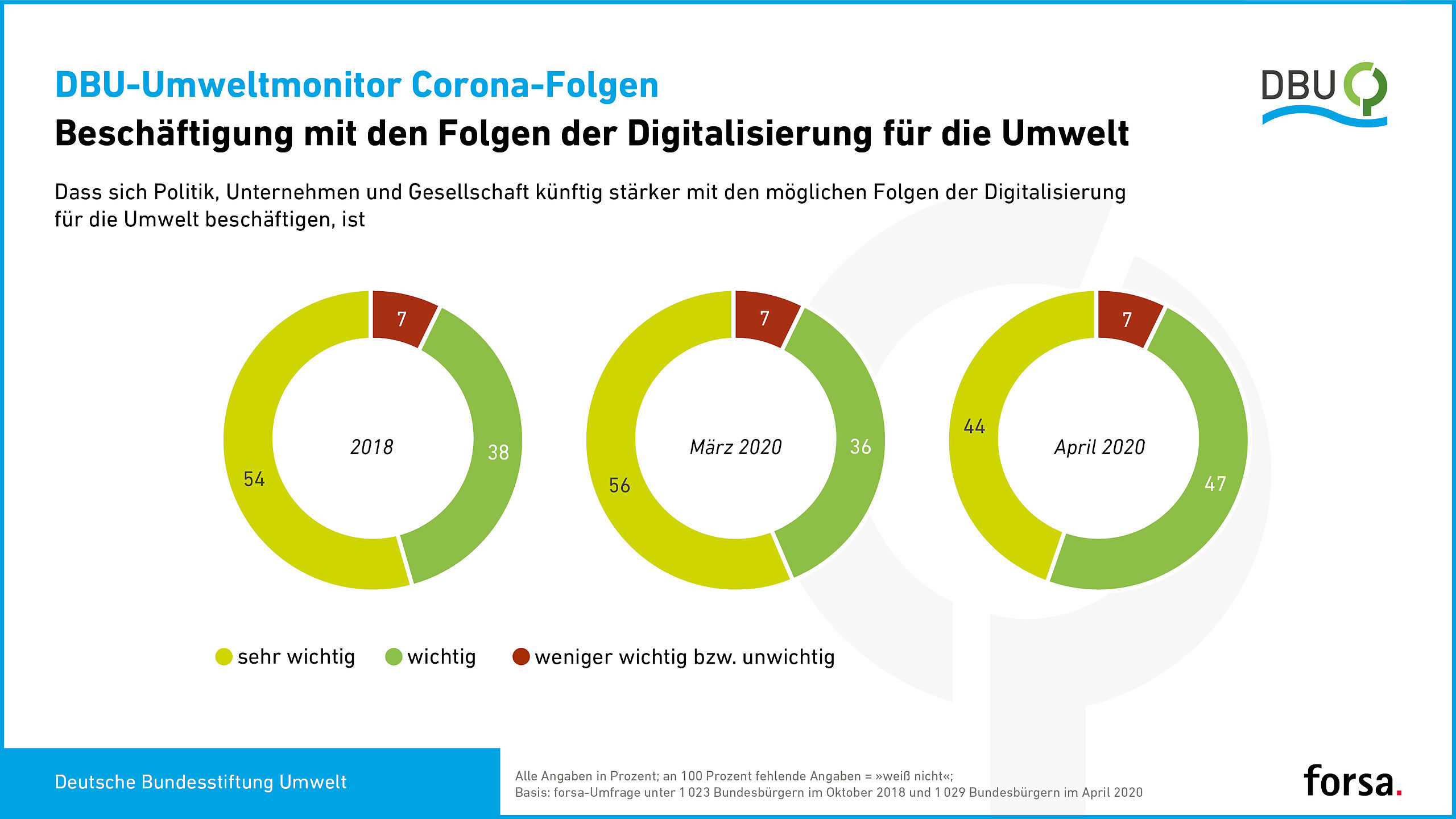Digitization and sustainability
The megatrend of digitization will lead to far-reaching changes in society, the economy and the environment. Back in 2018, the DBU commissioned the representative survey “DBU Environmental Monitor: Digitization” for the first time in order to obtain a picture of citizens’ opinions on the question of the connection between the topics of digitization and the environment. The survey was now repeated in March 2020 – before the Corona crisis. In late April 2020, the March 2020 survey was conducted again to reflect potential changes in opinion due to the Covid 19 crisis. Between April 27 and April 30, 1,029 German citizens took part in the representative survey.
The most important results
A majority of the population (57 percent) sees the digital transformation as an opportunity for our society. 35 percent of respondents see both opportunities and threats, while only 6 percent tend to see or predominantly see threats. Compared to the surveys from March 2020 and 2018, citizens increasingly see opportunities in the digital transformation and less the dangers.
Almost 50 percent of the population also see advantages for the environment from digitization, while only 9 percent believe the dangers outweigh the benefits. Here, compared to the previous month’s survey, there is a clear change in the population’s opinion: 10 percent more people see the positive impact of digitization in the Corona crisis. Similar to previous surveys, 39 percent continue to see both advantages and disadvantages.
When asked about the positive consequences, 87 percent of respondents are convinced that the development of environmentally friendly technologies will have a great (51 percent) or even very great (36 percent) impact on the environment. Furthermore, 75 percent of respondents believe that reduced traffic through new services such as car sharing, home office and video conferencing will have a positive impact on the environment. These settings are up from March 2020. The positive view of working from home and videoconferencing instead of business travel is also reflected in the DBU Environmental Monitor “Corona Consequences,” where three-quarters of respondents or more were in favor of more home offices and videoconferencing.
The majority of citizens anticipate (very) major negative consequences for the environment due to the increase in electrical waste (75 percent) and higher material consumption for the production of these electrical devices (68 percent). Likewise, a majority of respondents fear higher air pollution from delivery traffic as a result of online shopping (56 percent) and higher energy consumption from increased use of electronic devices (also 56 percent). Compared with March 2018, concerns about negative consequences have decreased slightly.
Since 2018, the vast majority of respondents (over 90 percent) have consistently seen it as important or very important for policymakers, companies and society to pay more attention to the potential consequences of digitization for the environment in the future.
You can access the full survey results here. You can access the graphics below here.
